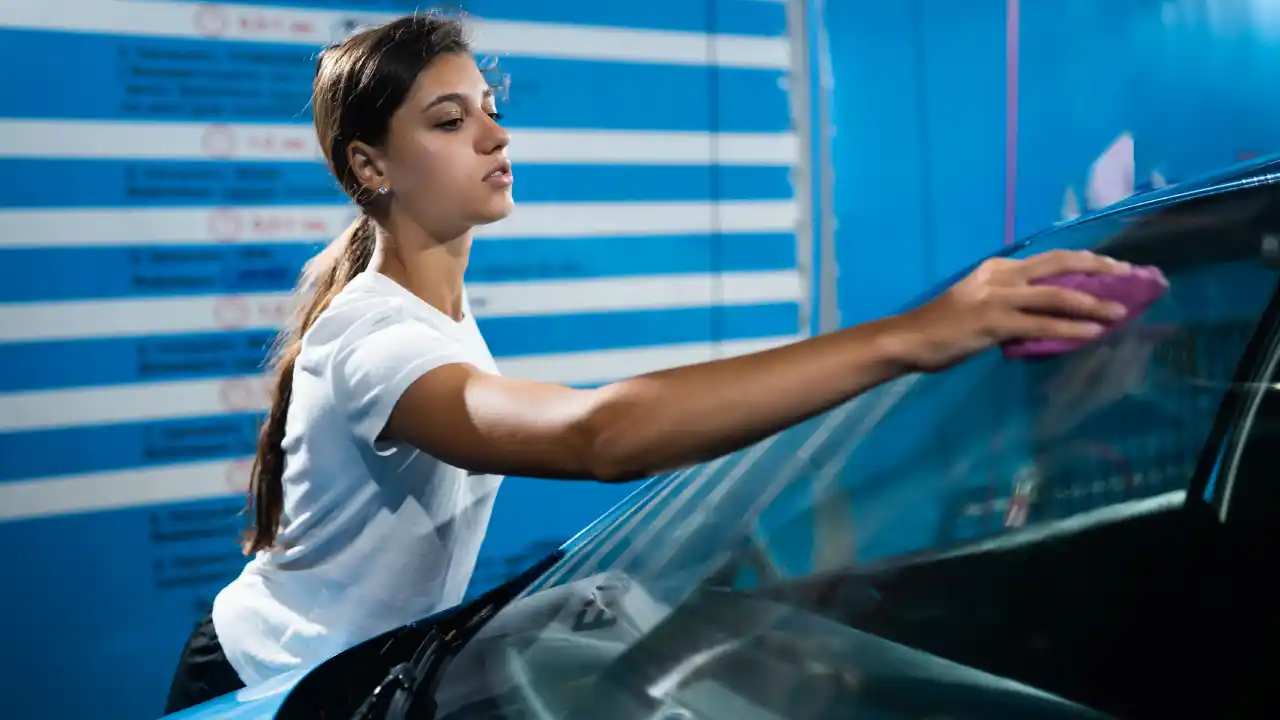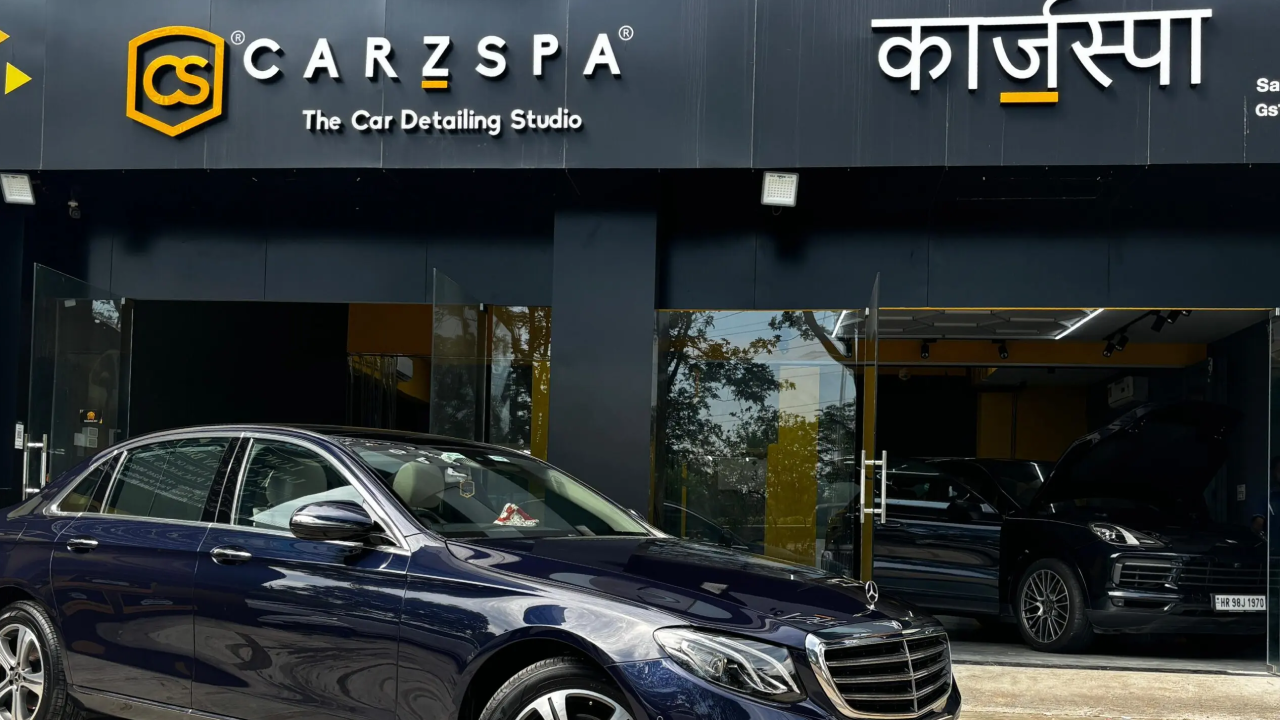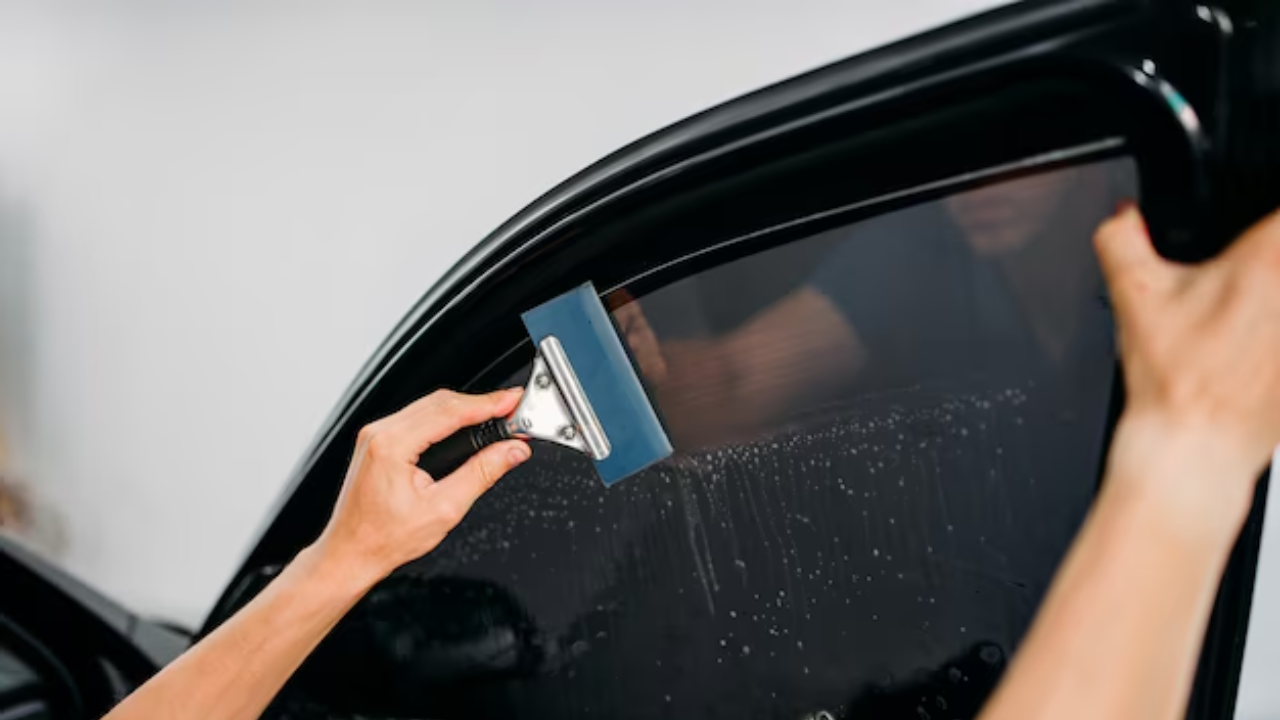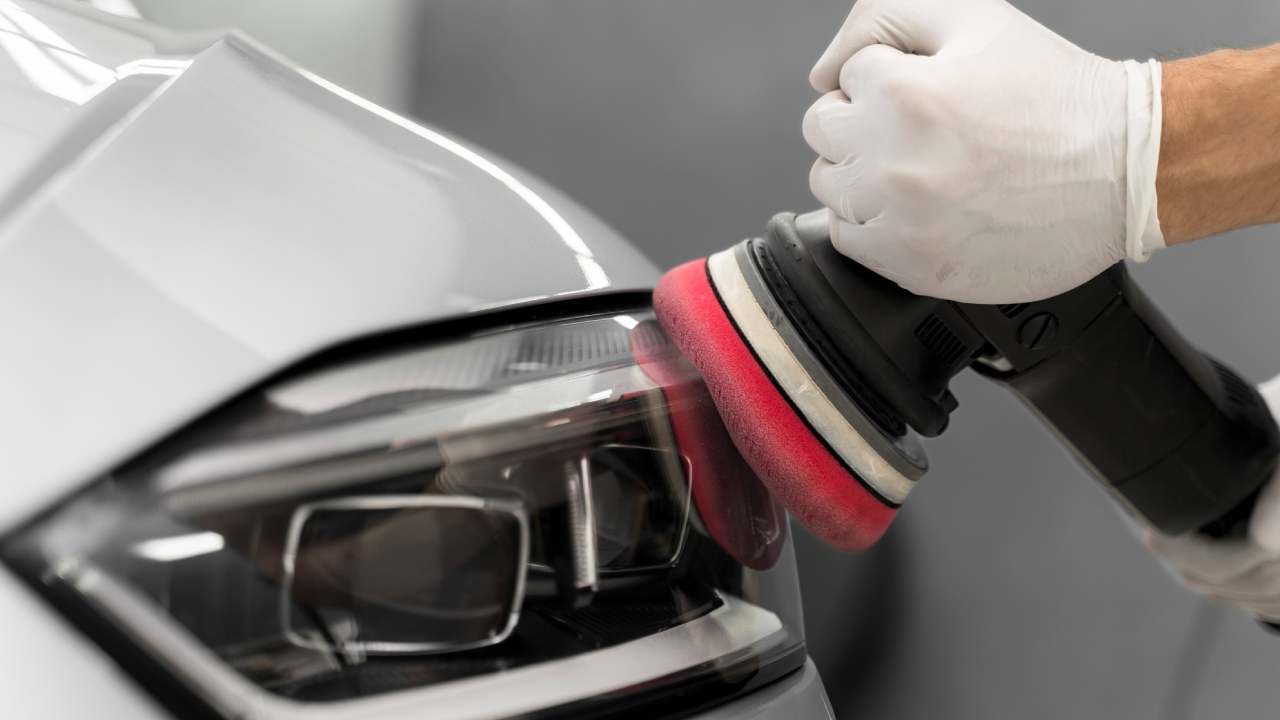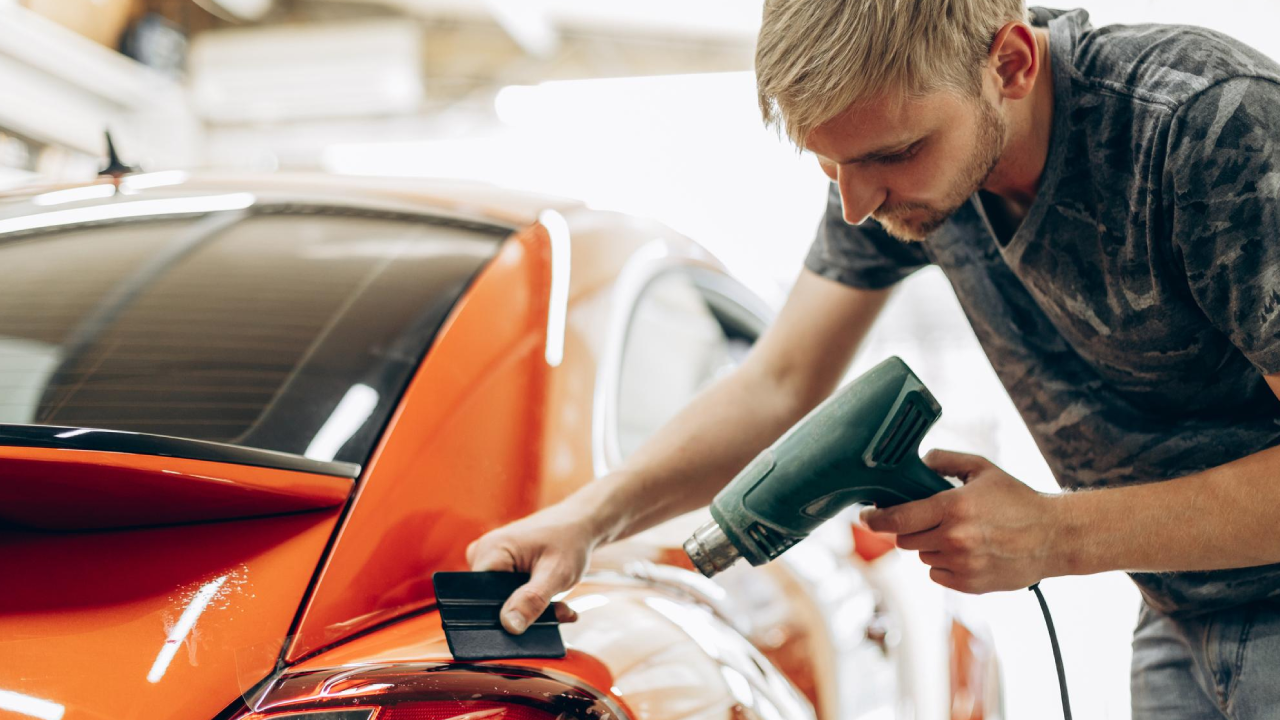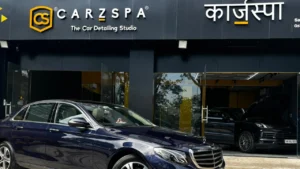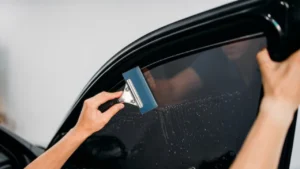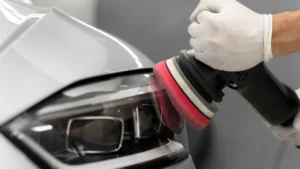Car Window Films are a cutting-edge innovation in car care that can keep your car cool, cosy and glare-free while driving. By installing window films on your windshield and other windows, you can enjoy multiple advantages for your vehicle. Window glass films can protect your car from harmful UV rays, reduce heat inside the car, improve energy efficiency, reduce glare and improve visibility.
However, not all window films are suitable for all glass types and there are some regulations to follow in India. In this blog, we will explore the types, benefits, regulations, features and window film cost. We will also introduce Aegis Window Films, the high-quality car window film developed by CarzSpa Detailing Studios.
Table of Contents
What exactly are Window Films?
If you want to protect your car from various environmental factors, such as UV rays, heat and light, you might want to consider applying window films to your windows. Window films are thin layers of film that work by blocking or reflecting the elements that enter through the windows. However, not all window films are the same. You can find different types of window glass films in the market, such as dyed, metallised, ceramic and hybrid window films.
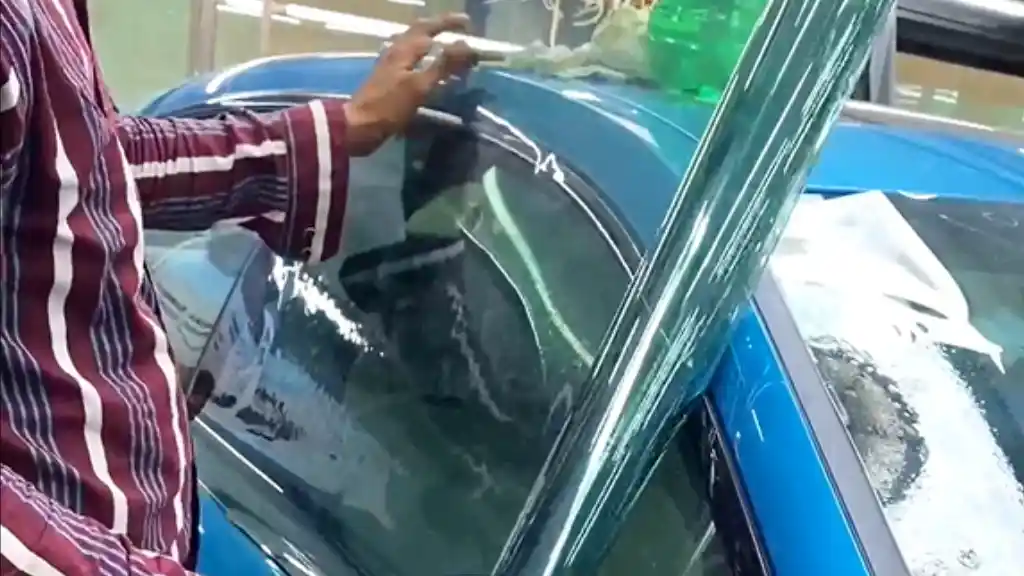
Each type has its pros and cons in terms of performance, durability, appearance and film cost. For example, dyed window films are more affordable and darker, but they tend to fade over time and do not block heat well. On the contrary, ceramic window films are priced higher, lighter, more durable and block heat better.
Therefore, it is important to choose the right type of window film for your car based on your needs and preferences. You can also consult with professional car detailing services, such as CarzSpa who guide in selecting and installing such car window film for you.
Introducing Aegis Window Films
Upgrade your car’s comfort and safety with Aegis Window Films, the ultimate solution to harmful UV rays and unwanted glare. This premium range of window glass films provides high heat rejection, ensuring your car stays cool and cosy inside even in the scorching summers.
Drive safely without worrying about any glare on the road, as the Aegis Car Window Film provides a clear view of the surroundings while preventing glare from the sun or other bright lights. As the visibility isn’t compromised, you’re more confident on the road.
Aegis offers two types of window films
1. K70 – Carbon window film: This is a premium-grade carbon window film that offers exceptional heat reduction and UV protection. The matte finish gives your window a stylish look with no signal interference and saves energy. It’s also easy to maintain with regular car washing services.
2. CX70 – Ceramic window film: This is a highly advanced ceramic window film that rejects heat, making it the perfect solution for keeping the cabin cool even on the hottest and sunniest of days. It provides superior comfort, reduces glare and blocks up to 99% of harmful UV rays.
How do Carbon Window Films and Ceramic Window Films work?
Carbon Window Films
These are non-dyed and non-metallic car window films, so they do not fade with time nor interfere with signals. Carbon window tinting was introduced at the turn of the century. The carbon particles absorb heat and filter UV and infrared light.
Carbon window glass films usually use carbon particles mixed into the film. This type of window tint rejects more heat than metalised films, without causing cell signal interference. They do not cause any problems for electronic equipment like radios, GPS and mobile phones. It provides a unique matte look.
Nano-Ceramic Window Films
Ceramic window tints use ceramic particles to reject heat, sun glare, and UV rays. This film offers the highest levels of all categories while never sacrificing visibility. Ceramic window films are still relatively new, with the initial patents for nano-ceramic films being approved in the late 1990s and mainstream use climbing over the last 15 years.
Nano-ceramic insulation window film is a ceramic insulation film formed by using titanium nitride ceramic material to form a nano-level ceramic layer on a polyester film using vacuum sputtering technology. Without affecting the VLT, it can block up to 98% of infrared rays and 99% of UV rays.
The nano-ceramic film, with its heat insulation principle being absorption rather than reflection, can ensure that GPS and mobile phone signals in the car are not blocked. A ceramic window film can be optically clear, yet still offer the same UV and infrared blocking ability as darker film. It’s also easy to maintain with regular car paint protection services in India.
Market Overview and Government Regulations
The market for window films in India is diverse, with international brands, Indian big brands and local importers all vying for a share. In the past, traditional distribution through car accessories stores has been prevalent. However, recently car detailing stores (both franchised and non-franchised car care studios) have started offering window films, alongside their best paint protection film in India. The best time for sales is during the summer or pre-summer months.
Aftermarket tints are banned in India, but OEM tints are allowed. However, 90% of OEMs do not tint their windows, instead opting to provide plain glasses. The government regulations allow for a 70% VLT (Visible Light Transmission) for the Windshield and Rear windows, and 50% VLT for side windows.
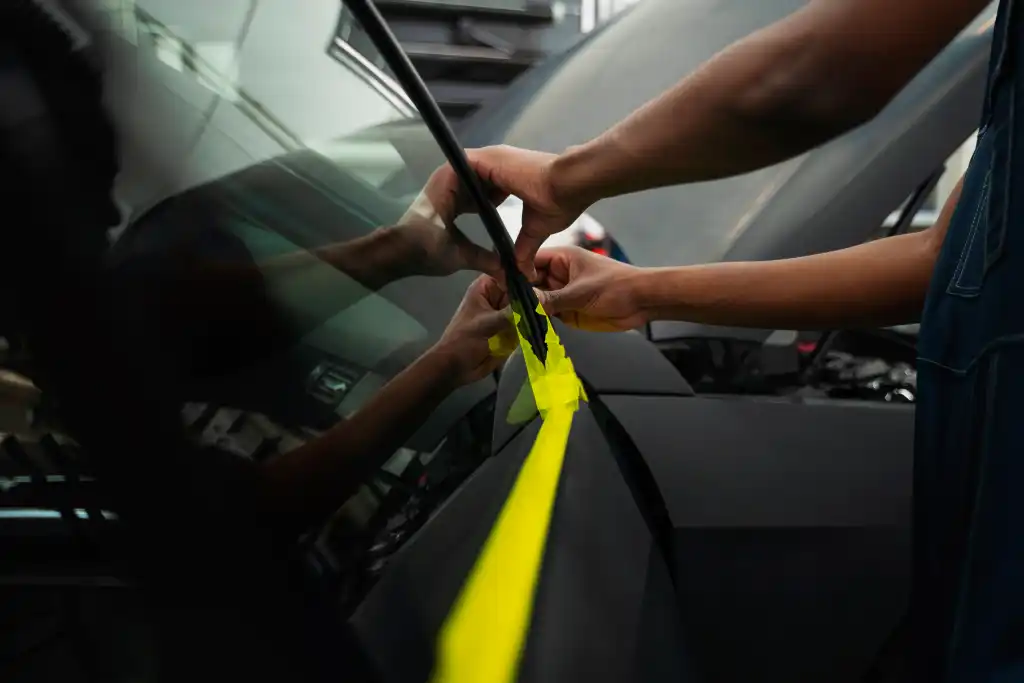
The rules regarding aftermarket external films are unclear; it is a grey area. While all films are technically banned in the aftermarket, 70% VLT films are still widely installed as they are difficult for law enforcement to notice. Due to the hot conditions in India, sun film provides major advantages such as heat reduction and UV rays protection. This leads many car owners to ignore the law banning sun films and install them anyway.
Things to keep in mind while choosing Window Films
When choosing car window films, it is important to consider the VLT, IRR, UVR and TSER ratings.
VLT stands for Visible Light Transmission. It is the percentage of visible light that is allowed to pass through the window glass film. A lower VLT rating means the film is darker and allows less light in.
IRR stands for Infrared Rejection. It is the percentage of infrared radiation that is blocked by the film. Infrared radiation is the main source of solar heat, so a higher IRR rating means the film will reject more heat.
UVR stands for Ultraviolet Rejection. It is the percentage of ultraviolet radiation that is blocked by the film. Ultraviolet radiation is harmful to the skin and can cause fading to interior furnishings. A higher UVR rating means the film will provide better protection from UV rays.
TSER stands for Total Solar Energy Rejection. It is the percentage of total solar energy that is rejected by the film. TSER takes into account all wavelengths of solar radiation, including visible light, infrared radiation and ultraviolet radiation. A higher TSER rating means the film will reject more solar energy overall.
You should also consider the thickness of the film and the climate you live in. Mils is a unit of thickness. One mil is equal to one-thousandth of an inch. Thicker films are generally more durable and provide better heat rejection. In hot climates, you may want to choose a film with a high IRR and TSER rating. In colder climates, you may want to choose a film with a high VLT rating to allow more sunlight in. And this affects the film cost too.
Wrapping up…
Window films are a smart investment for your car that can enhance its appearance, comfort, and safety. They can shield your car from the sun’s harmful rays, keep it cool and energy-efficient, reduce glare and improve visibility.
Aegis window films are one of the best options in the market as they offer high heat rejection and superior comfort while reducing glare and blocking up to 99% of harmful UV rays. They also have better heat dissipation, low reflection, zero signal interference, more durability and a better price-performance ratio than other brands.
If you want to give your car the ultimate protection and care, you can also opt for other car care services such as CrystalShield, the best ceramic coating for cars or G10 Impact graphene ceramic coating services at CarzSpa Detailing Studios.
These services can provide your car with a glossy, scratch-resistant, and hydrophobic coating that will make it look stunning and easy to maintain. You can also avail of car interior cleaning services in India at any of the 90+ CarzSpa Detailing Studios all over the country.
Frequently Asked Questions
1. How long does car window film last?
Standard window tint generally lasts up to 5 years on average. However, higher-quality films made with metal, ceramic, and high-grade polyester can last up to 10 years time. Always remember that the lifespan of window tint will inevitably decrease in time if maintenance isn’t done properly.
2. What percentage of film can you apply on the car window? As per RTO rules, you must use RTO-approved car glass film with 70% visibility in the front and rear glasses of your car, while the windows are allowed to have 50% visibility. The law of tinted glass has been enforced to avoid criminal activities and for the protection of the people at large.
3. What is the cost of Window Films in India? The cost of tinting a car’s windows in India can vary depending on several factors such as the size of the car, the quality of the film, and the service provider. On average, the price can range from Rs. 5,000 (for dyed films) to Rs. 30,000 (ceramic films) on a full car.

